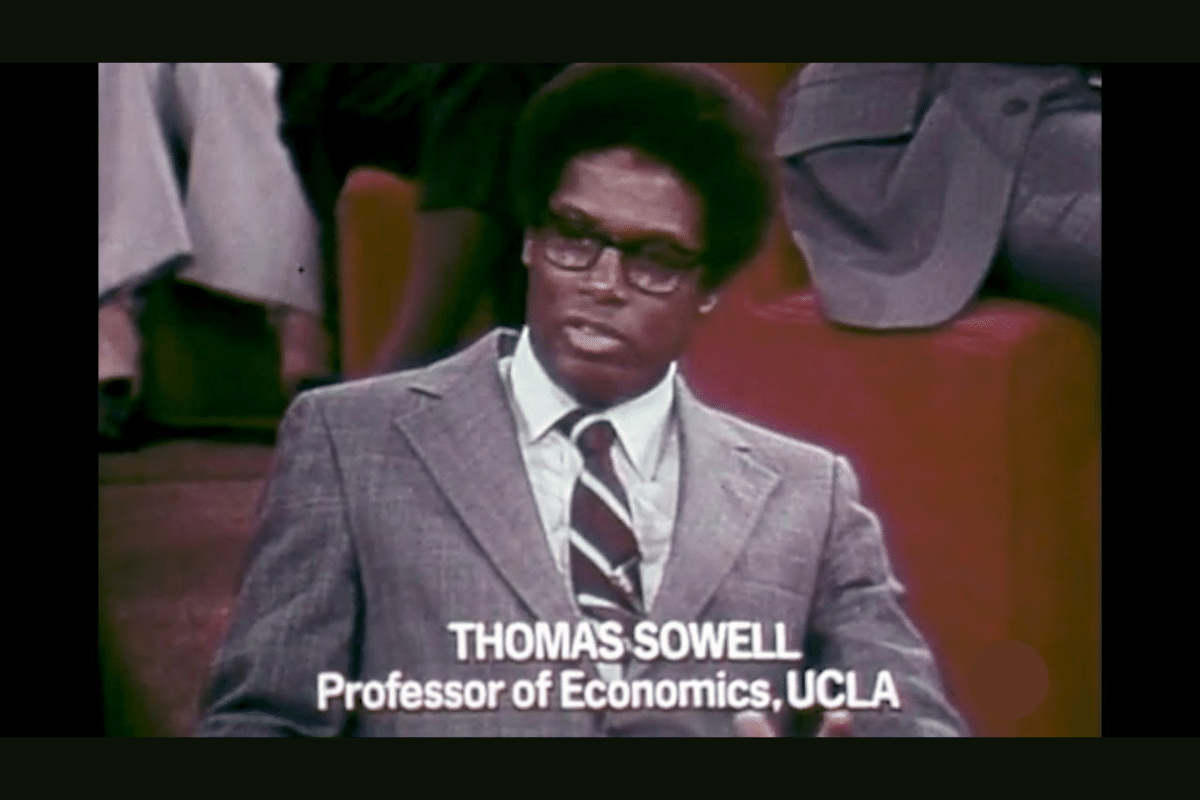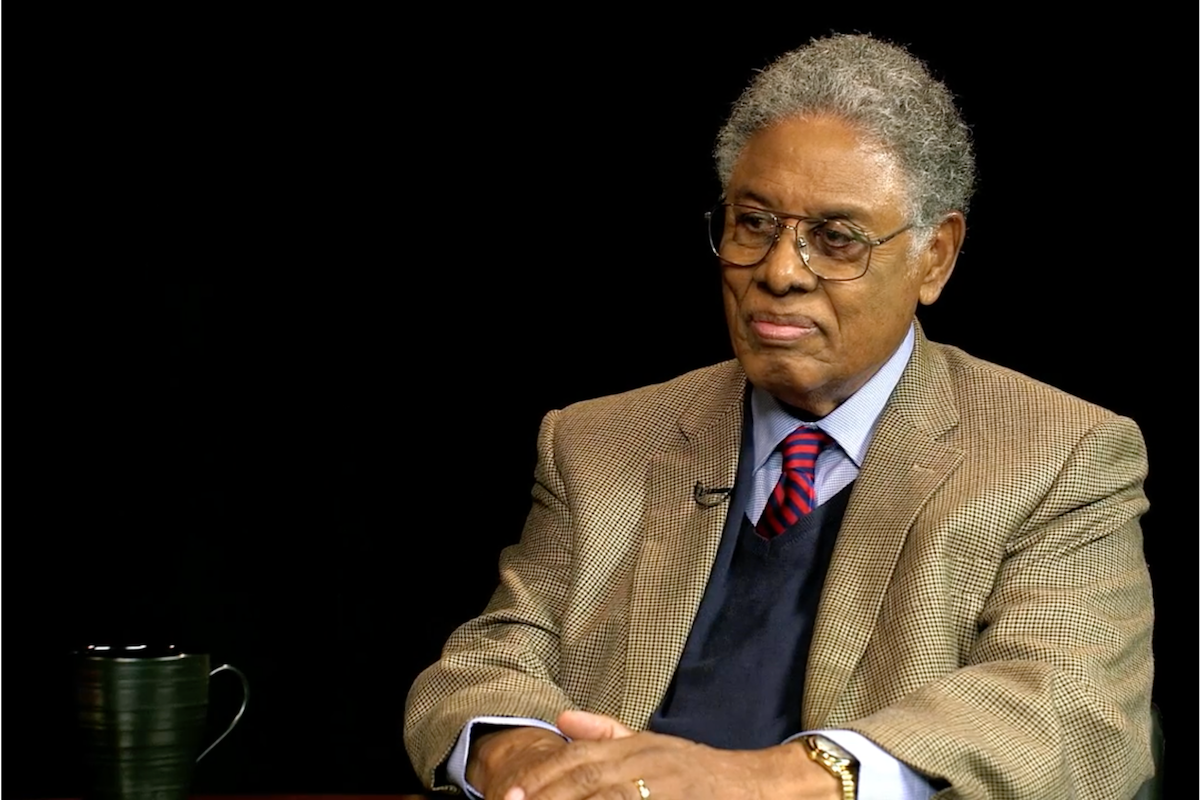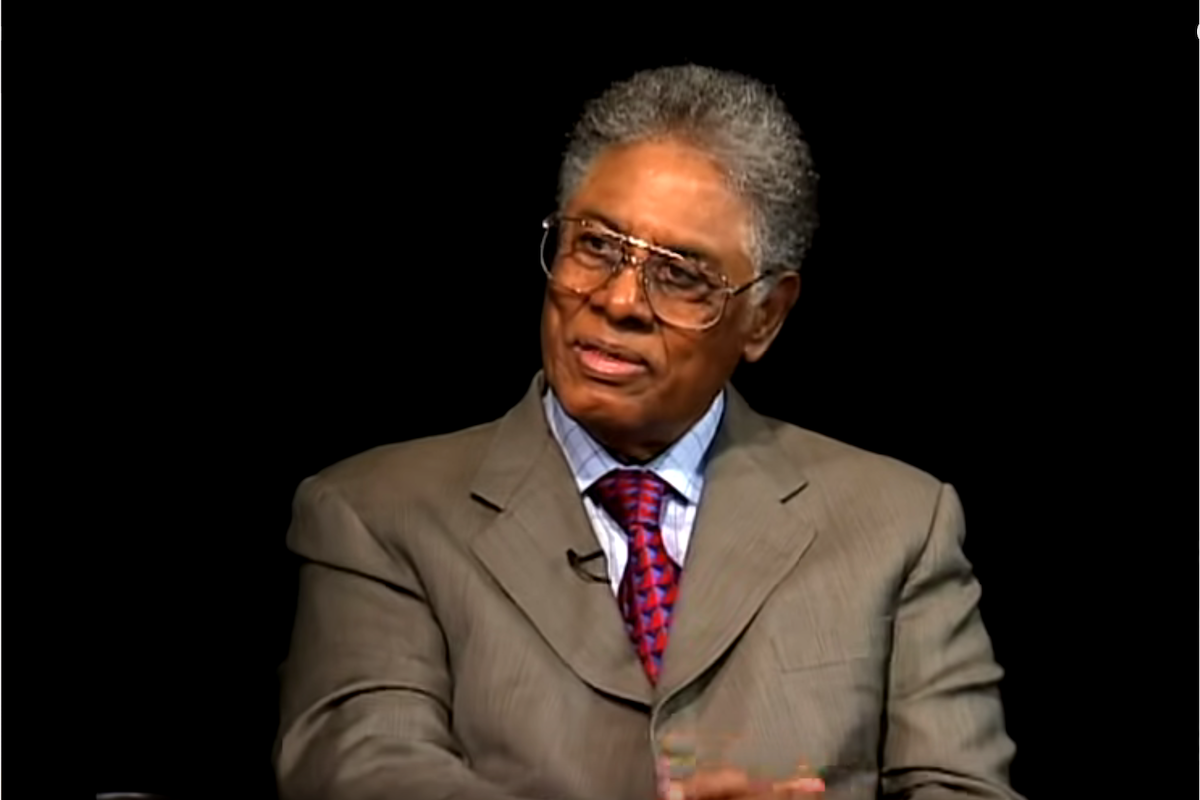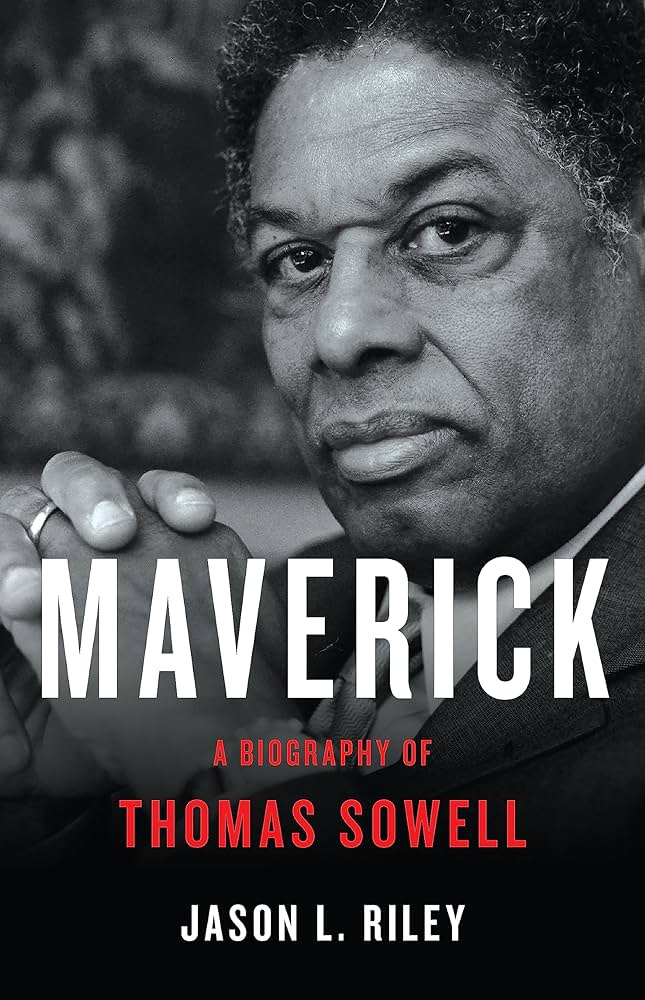Memoir
Thomas Sowell's Harlem Years
A bright student with a tumultuous home life, Sowell was admitted to one of New York’s most competitive high schools but dropped out at age 16.

Thomas Sowell was born in rural North Carolina in 1930 to a family with no electricity or running hot water. His father died before he was born and his mother, a maid, passed away giving birth to his younger brother a few years later. The orphaned Sowell was taken in by a great aunt, who raised him as her son and hid from him the fact that he was adopted and had a sister and four brothers. The family relocated, first to Charlotte, North Carolina, and later, when Sowell was eight years old, to New York City’s Harlem neighborhood, where he was raised thereafter.
A bright student with a tumultuous home life, Sowell was admitted to one of New York’s most competitive high schools but dropped out at age 16. He left home a year later, after a magistrate labeled him a “wayward minor,” and moved into a shelter in the Bronx for homeless boys, where he kept a knife under his pillow at night for protection. He took whatever jobs were available at the time—messenger, laborer—for a black high school dropout with few marketable skills. He didn’t get around to earning a college degree until he was already in his late 20s and had served in the Marines.
It would be difficult to exaggerate the severity of the learning curve Sowell faced when he entered college. It’s not just that he hadn’t been a full-time student in almost a decade. He also was unfamiliar with the basics of the academy to a degree that was startling, but perhaps not unusual for someone who was the first in his family to reach seventh grade. Before transferring to Harvard, he had attended night classes at Howard University. “As an example of my academic naivete at this point, when I heard professors referred to as ‘doctor’ I thought they were physicians and marveled at their versatility in mastering both medicine and history or medicine and math,” he later wrote.

As an undergraduate at Harvard, Sowell read an academic article by economist George Stigler on the theories of David Ricardo. Sowell was so taken by the subject matter, and so impressed by Stigler’s command of it, that he turned his own focus toward the history of ideas, and resolved to do his graduate work under Stigler’s guidance, first at Columbia and then at the University of Chicago. At Harvard, “smug assumptions were too often treated as substitutes for evidence or logic,” he recalled. There was a tendency “to assume that certain things were so because we bright, good fellows all agreed that it was so.”
Nor did he ever quite adjust to the social atmosphere in Cambridge. “I resented attempts by some thoughtless Harvardians to assimilate me, based on the assumption that the supreme honor they could bestow was to allow me to become like them,” he said, adding, “I readily accepted all aspects of what Harvard had to offer that seemed worthwhile, and readily rejected all that struck me as nonsense. The fact that I was avidly reading W. E. B. Du Bois did not keep me from Shakespeare or Beethoven.”
The Chicago economics department was extremely demanding and the vetting was brutal, said Ross Emmett, an authority on the history of the Chicago school of economics. “During that period of time, Harvard took in twenty-five to twenty-seven students and graduated twenty-five of them, whereas Chicago took in seventy students and graduated twenty-five of them.” The department also had a reputation for being conservative, and Sowell’s political views at the time were, in his words, “still strongly left wing and very much under the influence of Marx.”
Nevertheless, he had no qualms about leaving Columbia for Chicago: “I was far more impressed by the fact that we shared similar intellectual values.” Graduate economics “is a technical field and not an ideological battleground,” he reasoned.
The interest in Karl Marx had started in Sowell’s late teens, after he purchased a second-hand set of encyclopedias that included an entry on the German philosopher. It’s not hard to contemplate why a black person born during the Great Depression in the Jim Crow South and then raised in urban ghettos might find the precepts of Marxism persuasive. The cruel capitalists, the greedy bourgeoisie, the oppressed masses, the coming revolution—this outlook had a certain appeal to Sowell.
“When I left home, I had not finished high school and had [various] low-level jobs,” he told me. “It was a trying time … This was starting at the very bottom.” After work in Lower Manhattan, he usually took the subway back up to Harlem. Occasionally, however, Sowell would ride home atop one of the city’s double-decker buses and marvel at the shifting urban landscape as he headed north. The bus traveled up 5th Avenue, past the upscale department stores that catered to the wealthy. At 57th Street, it would turn left, pass by Carnegie Hall, snake around Columbus Circle, proceed up Broadway, and continue north on Riverside Drive through affluent residential neighborhoods. “And then somewhere around 120th Street, it would go across a viaduct and onto 135th Street, where you had the tenements,” he said. “And that’s where I got off. The contrast between that and what I’d been seeing most of the trip really baffled me. And Marx seemed to explain it.”

Sowell would self-identify as a Marxist throughout his 20s. His senior thesis at Harvard was on Marxian economics, and his master’s thesis at Columbia was on Marxian business-cycle theory. Even his first scholarly publication, in the March 1960 issue of American Economic Review, was on the writings of Karl Marx. But like many others who are attracted to Marxist philosophy in their youth, Sowell would abandon it as he became older. It helped that he was never a doctrinaire thinker to begin with, and kept an open mind. “I read everything across the political spectrum” in those days, he said. “I understood that there were reasons why people have different views. [As] I see even today, it’s not just a question of being on the side of the angels and against the forces of evil.”

Excerpted, with permission, from Maverick: A Biography of Thomas Sowell, by Jason L. Riley. Copyright ©2021 by Jason L. Riley. Published by Basic Books, an imprint of Perseus Books, LLC, a subsidiary of Hachette Book Group, Inc.






